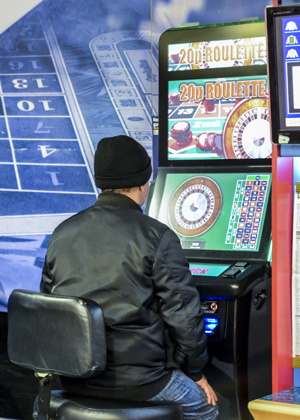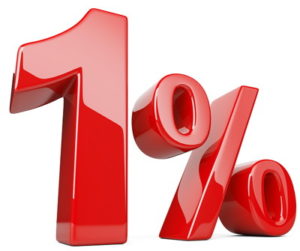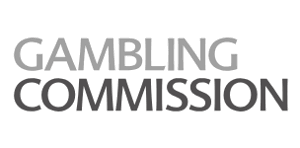Bookmakers Keen To Avoid Crackdown On Gambling By Increasing Levy To 1%
 Problem gambling has been one of the hottest topics in recent times, with the government’s decision to both reduce the maximum stake applicable to Fixed Odds Betting Terminals and to introduce the stake cut sooner than initially planned all due to pressure put on it by campaign groups.
Problem gambling has been one of the hottest topics in recent times, with the government’s decision to both reduce the maximum stake applicable to Fixed Odds Betting Terminals and to introduce the stake cut sooner than initially planned all due to pressure put on it by campaign groups.
The move to make the alteration to FOBTs wasn’t one that bookmakers took lightly, however, fighting the government every step of the way in the hope that they could avoid costly cuts to one of their chief revenue streams.
It was a battle that was less than flattering to the industry at a time when many believe that the government should be cracking down on it even more than they have been. In an effort to restore the gambling industry’s reputation, a group of high-profile bookies have volunteered to increase the amount of money that they pay to the government towards tackling problem gambling, as well as looking to changing the message put forward by gambling companies in advertising. It’s a move that they hope will stop the government from forcing them to increase the levy that they pay, allowing them to do it on their own timescale.
What The Bookies Have Volunteered To Do
 The owners of Skybet, Coral Ladbrokes, Bet365, William Hill and Betfair Paddy Power have offered to increase the voluntary levy that they pay from the current 0.1% to 1% over the course of the next 5 years.
The owners of Skybet, Coral Ladbrokes, Bet365, William Hill and Betfair Paddy Power have offered to increase the voluntary levy that they pay from the current 0.1% to 1% over the course of the next 5 years.
The levy is put on the profits of gambling companies and the money raised is put towards tacking problem gambling by way of education and treatment for those that struggle with addiction. The levy raised £10 million last year, meaning that it would see an increase to around £100 million in 5 years time if it goes ahead.
The move comes on the back of gambling companies confirming that they’ll introduce a self-imposed ‘whistle-to-w histle’ ban on televised advertising on football matches shown before 9pm. No gambling adverts will appear from 5 minutes before kick-off until 5 minutes after the full-time whistle on pre-watershed football matches starting in August.
The move follows pressure from political groups regarding the number of gambling adverts shown on TV. The two decisions together are being done in the hope of avoiding the government enforcing similar rules on betting companies but doing so in a way that would stop them from being able to dictate their own timetable on the matter.
The Pledge Was Made In A Letter To The DCMS
 The BBC saw a copy of the letter sent by the heads of the various gambling companies to the Department for Digital, Culture, Media and Sport, in which they promised not only to increase the levy but also to review the ‘tone and content’ of the sorts of adverts that they put out to the public.
The BBC saw a copy of the letter sent by the heads of the various gambling companies to the Department for Digital, Culture, Media and Sport, in which they promised not only to increase the levy but also to review the ‘tone and content’ of the sorts of adverts that they put out to the public.
It came after the Gambling Commission said that there needed to be a £70 million annual increase in the amount of money that the industry pays towards staff, research and treatment for problem gambling.
An industry insider told the BBC that the decision was based on the fact that the gambling industry felt that it was ‘on a precipice’, with the possibility being that it would follow the same path tread by both the tobacco and alcohol industry of being reined in to the point of non-existence in the sporting realm if it didn’t do something to stop the development itself.
The letter offered to make a ‘priority of protecting the young and vulnerable’, working in collaboration to stop it becoming a full-blown crisis.
What Others Are Saying About The Pledge

The Secretary of State at the DCMS, Jeremy Wright, told the BBC that he wanted the gambling industry to ‘step up’ and do more to ‘keep their players safe’.
Wright felt that one of the main ways that gambling firms could do that was by making more money available for education and research into the issue as well as treatment for those that were already victims of problem gambling. He made reference to a ‘strong package to increase their financial contribution’ that he and his colleagues had discussed with members of the gambling industry that it was hoped would ensure that people gamble more safely moving forward. He also spoke his encouragement at the fact that the industry recognised that it ‘needs to do more’ to help the most vulnerable.
Mr. Wright wasn’t the only politician speaking on the matter, however, and Labour’s Deputy Leader, Tom Watson, wasn’t as quick to praise the gambling industry for their offer. Watson has long been an ardent critic of the gambling industry and he suggested in a speech to the think tank Demos that Labour would introduce a ‘gambling ombudsman’ if they got into power at the next general election.
It was one of a string of policies that the Deputy Leader has recently said his party would introduce in a bid to bring down problem gambling in the United Kingdom, including banning betting with credit cards and commissioning research into the treatment of problem gambling.
Problem Gambling Issues ‘Under-Estimated’ Says BMJ
 Watson also believes that gambling firms should be forced to reapply for their licence, proving that they are committed to the corporate responsibility placed on them. He has previously said that the UK is in the midst of a ‘gambling epidemic’ and that it has the potential of becoming a ‘public health crisis’.
Watson also believes that gambling firms should be forced to reapply for their licence, proving that they are committed to the corporate responsibility placed on them. He has previously said that the UK is in the midst of a ‘gambling epidemic’ and that it has the potential of becoming a ‘public health crisis’.
It’s little wonder that he’s so adamant on the matter, considering that the British Medical Journal has recently published a report that suggests that the harms of problem gambling, both in economic and social terms, have been under-estimated.
Whilst the Gambling Commission readily admits that there are around 430,000 people in the United Kingdom who would be said to have a ‘serious gambling problem’, with the number rising to more than 2 million if you also include those that are at risk of becoming addicted, the BMJ’s article suggests that the cost of these issues has actually been downplayed.
With that in mind, it’s hardly surprising that the gambling industry would try to get out ahead of any government decision to increase the amount of money they put towards solving the problem. Whether their voluntary offer to shift the amount of money they pay will be enough to satisfy the government remains to be seen.



